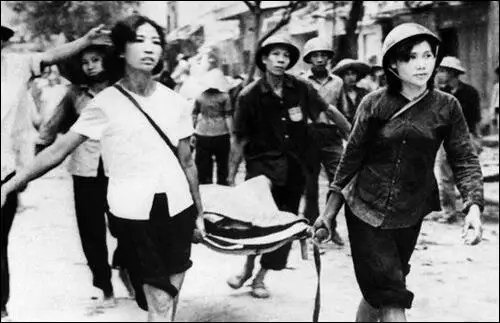On this day on 13th October
On this day in 1399 Henry of Bolingbroke is crowned King Henry IV of England in Westminster Abbey, a few weeks after deposing Richard II. For the next few years Henry had to cope with several revolts against his rule. Between 1400 and 1408 he also had to deal with the uprising in Wales led by Owain Glyn Dwr. Henry was also in constant conflict with Parliament over the subject of taxation. In 1408 the king became ill (possibly leprosy) and increasingly had to rely on his eldest son. Henry, to help him rule the country.
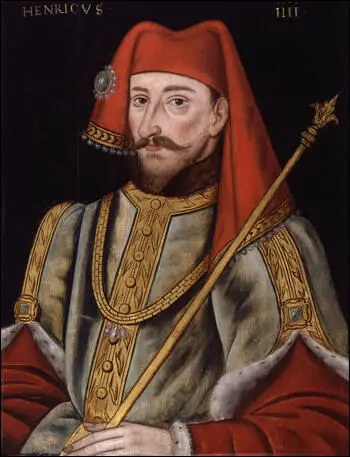
On this day in 1536 Pilgrimage of Grace begins in Northern England, protest against KingHenry VIII's break with the Pope. Robert Aske and his rebels entered York on 16th October. It is estimated that Aske now led an army that numbered 20,000. Aske made a speech where he pointed out "we have taken (this pilgrimage) for the preservation of Christ's church, of this realm of England, the King our sovereign lord, the nobility and commons of the same... the monasteries... in the north parts (they) gave great alms to poor men and laudably served God... and by occasion of the said suppression the divine in divine service of Almighty God is much diminished."
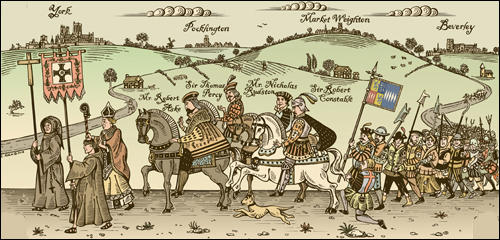
On this day in 1659 Major General John Lambert, John Desborough and Charles Fleetwood helped to remove Richard Cromwell as Lord Protector of the Commonwealth. Parliament and the leaders of the army now began arguing amongst themselves about how England should be ruled. General George Monck, the officer in charge of the English army based in Scotland, decided to take action, and in 1659 he marched on London. When Monck arrived he reinstated the House of Lords and the Parliament of 1640. Royalists were now in control of Parliament. Monck now contacted Charles II, who was living in Holland. Charles agreed that if he was made king he would pardon all members of the parliamentary army and would continue with the Commonwealth's policy of religious toleration.
Lambert attempted to arouse resistance to the restoration of the monarchy. He marched against George Monck in November 1659 but his army deserted and he was imprisoned in the Tower of London. Later he was transferred to Guernsey. After spending 24 years in prison John Lambert died on Drake's Island in February, 1684.
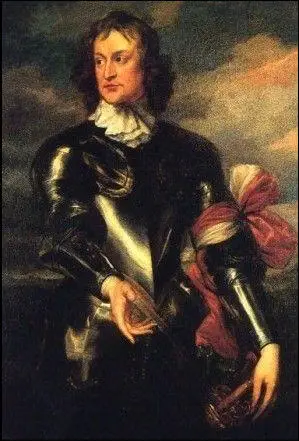
On this day in 1660 Thomas Harrison is hung, drawn and quartered for Regicide. Harrison was one of the fifty-nine jurors who signed the death warrant of Charles I. On the way to his execution, Harrison said: "I go to suffer upon the account of the most glorious cause that ever was in the world." Harrison said on the scaffold: "Gentleman, by reason of some scoffing, that I do hear, I judge that some do think I am afraid to die... I tell you no, but it is by reason of much blood I have lost in the wars, and many wounds I have received in my body which caused this shaking and weakness in my nerves."
Samuel Pepys witnessed his execution: "I went out to Charing Cross, to see Major-General Harrison, hanged, drawn, and quartered... he looked as cheerful as any man could do in that condition. He was presently cut down, and his head and heart shown to the people, at which there were great shouts of joy... Harrison's head has been set up (on a pole) on the other side of Westminster Hall."
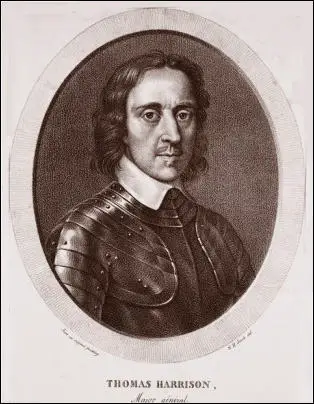
On this day in 1862 Mary Kingsley, the daughter of George Kingsley and Mary Bailey, and the niece of Charles Kingsley, was born in Islington on 13th October 1862. Her father qualified as a doctor and worked for the Earl of Pembroke. Both men had a love of travelling and together they produced a book of their foreign journeys, South Sea Bubbles. Her mother was an invalid and Mary was expected to stay at home and look after her. Mary had little formal schooling but she did have access to her father's large library of travel books.
When her father was at home Mary loved to hear his stories about life in other countries and willingly agreed to help him with his proposed book he was writing on the customs and laws of people in Africa. Although Kingsley did not consider taking his daughter with him on his travels, she was given the task of making notes on relevant material from his large collection of books on the subject.
In 1891 Kingsley returned to England after one journey suffering from rheumatic fever. With both her parents invalids, Mary took complete control over the running of the household. Mary even subscribed to the journal, English Mechanic, so that she could carry out repairs on their dilapidated house.
George Kingsley died in February 1892. Five weeks later her mother also passed away. Freed from her family responsibilities, and with a income of £500 a year, Mary was now able to travel. Mary decided to visit Africa to collect the material needed that would enable her to finish off the book that her father had started on the culture of the people of Africa. Mary also offered to collect tropical fish for the British Museum while she was touring the continent.
Mary arrived at Sao Paulo de Luanda in Angola in August 1893. She lived with local people who taught her how to fish using nets made of pineapple fibre. After learning the necessary skills, she went off alone to search the mangrove swamps in search of rare specimens. Her adventures included a crocodile attacking her canoe and being caught in a tornado.
Kingsley returned in 1895 in order to study cannibal tribes. She travelled by canoe up the Ogowe River where she collected specimens of formerly unknown fish. Several times her canoe capsized in the river's dangerous rapids. Mary also journeyed through dense forests infested with poisonous snakes and scorpions and wading through swamps trying to avoid the attentions of crocodiles. After meeting the cannibal Fang tribes she climbed the 13,760 feet Mount Cameroon by a route unconquered by any other European.
News of Mary Kingsley's adventures reached England and when she landed at Liverpool she was greeted by journalists who wanted to interview her about her experiences. Kingsley was now famous and over the next three years she toured the country giving lectures on life in Africa. In her talks she challenged the views of the "stay at home statesmen, who think the Africans are awful savages or silly children - people who can only be dealt with on a reformatory penitentiary line."
Mary Kingsley upset the Church of England when she criticised missionaries for trying to change the people of Africa. She defended polygamy and other aspects of African life that had shocked people living in Britain. Mary argued that a "black man is no more an undeveloped white man than a rabbit is an undeveloped hare."
The Temperance Society was also angered by Kingsley's defence of the alcohol trade in Africa. The African, she argued, is "by no means the drunken idiot his so-called friends, the Protestant missionaries, are anxious, as an excuse for their failure in dealing with him, to make out."
Kingsley held conservative views on women's emancipation. When the Daily Telegraph described her as a "New Women" she wrote a letter of complaint argued that "I did not do anything without the assistance of the superior sex."
In a speech she made on women's suffrage in 1897 she argued against women being given the vote in parliamentary elections. Kingsley claimed that the country already suffered from having a poorly informed House of Commons and believed that the "addition of a mass of even less well-informed women would only make matters worse." According to Kingsley, "women are unfit for parliament and parliament is unfit for them". However, women she believed were well informed on domestic issues and fully supported women taking part in local elections.
Mary Kingsley first book about her experiences, Travels in West Africa (1897) was an immediate best-seller. In her second book, West African Studies (1899) she described the laws and customs of the people in Africa and explained how best they could be governed. Joseph Chamberlain, the government's Colonial Secretary, wrote to Kingsley seeking her advice. However, Kingsley was such a controversial figure he asked her to keep their meetings secret.
Kingsley's descriptions of the behaviour of missionaries and traders in Africa inspired the young journalist, E. D. Morel, to carry out his own research into the problem. This resulted in a series of articles entitled The Congo Scandal (1900) that eventually had an impact on government policy.
On the outbreak of the Boer War, Kingsley volunteered to work as a nurse. When the editor of the Morning Post heard she was going, he asked her to report on the war. However, her work as a nurse in Simonstown kept her fully occupied. In a letter to a friend in England, Kingsley explained how typhoid fever was daily killing four of five of her patients. She also described fellow nurses dying of the disease and added that she thought it was unlikely that she would survive. Her prediction was unfortunately accurate and she died on 3rd June, 1900. As requested just before her death, Mary Kingsley was buried at sea.
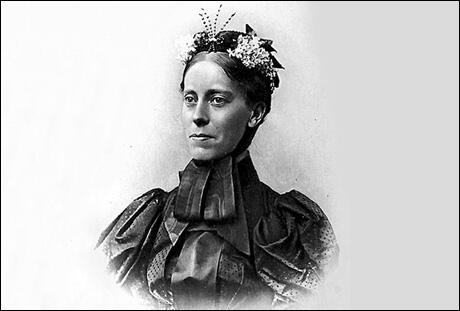
On this day in 1877 Josephine Goldmark was born in Brooklyn, New York. After graduating from Bryn Mawr College she became research director of the National Consumer's League (NCL) where she worked closely with Florence Kelley. After serving as publications secretary she was promoted to chairman of the NCL's committee on legal defence of labour laws.
Goldmark's research was published in several books including Child Labor Legislation Handbook (1907), Fatigue and Efficiency (1912), The Case for the Shorter Work Day (1916) and The Case Against Nightwork for Women (1918).
In 1919 Goldmark was appointed principal investigator of the Committee for the Study of Nursing Education. The publication of her report, Nursing and Nursing Education in the United States (1923) resulted in the improvement of nursing education in the United States.
After leaving the Committee for the Study of Nursing Education she joined Florence Kelley in her campaign to improve the working conditions of industrial workers.
Josephine Goldmark died in White Plains, New York, on 15th December, 1950.
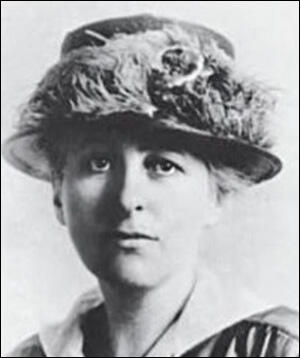
On this day in 1894 Mabel Gillespie was born in St. Paul, Minnesota. She was educated at Radcliffe College in Massachusetts. Inspired by the work of Jane Addams and Hull House she became involved in progressive politics.
In 1912 Gillespie was appointed to the Minimum Wage Commission established in Massachusetts. Five years later she became the president of the Stenographers' Union. The following year she joined the Woman's Trade Union League, serving on its executive board from 1919 until 1922.
A member of the Democratic Party, she was the first woman to take the oath of office as state representative in January, 1925. She felt that the legislature should seek fewer, better laws, and introduced one bill in first term, providing increased state funding of bridges. She was a strong supporter of a bill to extend water mains in small towns, believing that this would be a great boon to women. She lost her seat in 1937.
Mabel Gillespie died on 24 November, 1982.
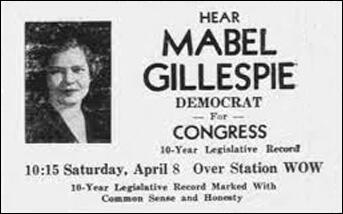
On this day in 1902 Arna Bontemps was born in Alexandria, Louisiana. Bontemps taught at Fisk University (1943-1965) and Yale University (1969-1972) and wrote a large number of books and plays. Bontemps was a successful novelist, poet, historian and biographer and much of his writing was dedicated to portraying the life of African Americans. Two of his novels, Black Thunder (1936) and Drums at Dusk (1939), dealt with slave revolts and led to accusations that he was encouraging African Americans to resort to violence. Other books by Bontemps include God Sends Sunday (1931), You Can't Pet a Possum (1934), The Story of the Negro (1948), George Washington Carver (1950), Frederick Douglass: Slave, Fighter, Freeman (1959), 100 Years of Negro Freedom (1961), Famous Negro Athletes (1964) and The Harlem Renaissance Remembered (1972). Arna Bontemps died in Nashville, Tennessee on 4th June, 1973.
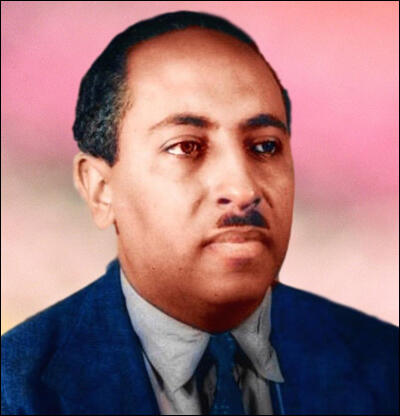
On this day in 1905 Christabel Pankhurst and Annie Kenney attended a meeting in London to hear Sir Edward Grey, a minister in the British government. When Grey was talking, the two women constantly shouted out, "Will the Liberal Government give votes to women?" When the women refused to stop shouting the police were called to evict them from the meeting. Pankhurst and Kenney refused to leave and during the struggle a policeman claimed the two women kicked and spat at him. Pankhurst and Kenney were both arrested.
Christabel Pankhurst was charged with assaulting the police and Annie Kenney with obstruction. In a deliberately aggressive courtroom speech, Christabel admitted that she has assaulted police officers and pointed out that "I am only sorry that one of them was not Sir Edward Grey... We cannot make any orderly protest because we have not the means whereby citizens may do such a thing: we have not a vote, and so long as we have not a vote we must be disorderly... When we have that, this will not see us in the police courts; but so long as we have not votes this will happen."
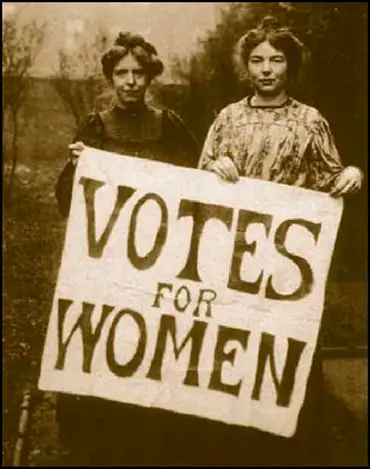
On this day in 1905 Leon Trotsky helped establish the St. Petersburg Soviet and was eventually elected chairman. He wrote a regular column for the Menshevik newspaper, Nachalo (The Beginning) and wrote editorials for Izvestia (The News), the official Soviet organ. "I wrote articles as well as numerous appeals, manifestos and resolutions. The fifty-two days of the existence of the first Soviet were filled to the brim with work... How we managed to live in this whirlpool is still not clear, even to me... We not only whirled in the vortex, but we helped to create it. Everything was done in a hurry, but, after all, not so badly, and some things were even done very well."
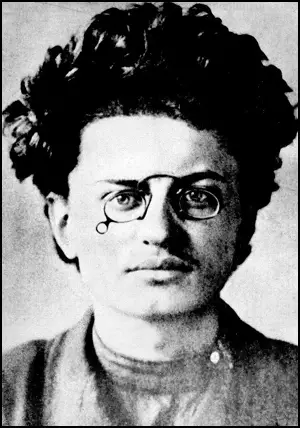
On this day in 1908 m embers of the WSPU attempt to enter the House of Commons by force. Twenty-four women and twelve men were arrested including Emmeline Pankhurst, Christabel Pankhurst, Mabel Capper,Clara Codd, Helen Crawfurd, Ada Flatman, Marion Wallace-Dunlop, Grace Roe and Ada Wright.
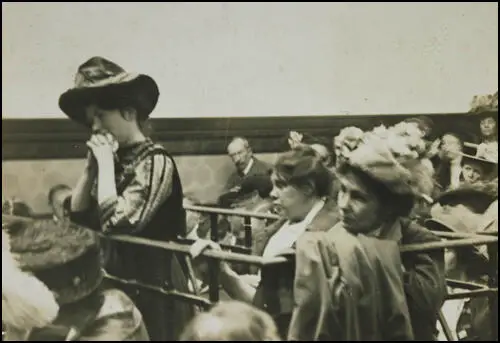
On this day in 1930 the new German Reichstag opens with 107 NSDAP members in uniform. Adolf Hitler was now the leader of the second largest party in Germany. The German Social Democrat Party was the largest party in the Reichstag, it did not have a majority over all the other parties, and the SPD leader, Hermann Mueller, had to rely on the support of others to rule Germany. After the SPD refused to reduce unemployment benefits, Mueller was replaced as Chancellor by Heinrich Bruening of the Catholic Centre Party (BVP). However, with his party only having 87 representatives out of 577 in the Reichstag, he also found it extremely difficult to gain agreement for his policies.
On this day in 1966, 173 US aircraft bomb North Vietnam. B-52 bombers, that could fly at heights that prevented them being seen or heard, dropped 8 million tons of bombs on Vietnam between 1965 and 1973. This was over three times the amount of bombs dropped throughout the whole of the Second World War and worked out at approximately 300 tons for every man, woman and child living in Vietnam. As well as explosive bombs the US air force dropped a considerable number of incendiary devices. The most infamous of these was napalm, a mixture of petrol and a chemical thickner which produces a tough sticky gel that attaches itself to the skin. The igniting agent, white phosphorus, continues burning for a considerable amount of time. A reported three quarters of all napalm victims in Vietnam were burned through to the muscle and bone (fifth degree burns). The pain caused by the burning is so traumatic that it often causes death.
